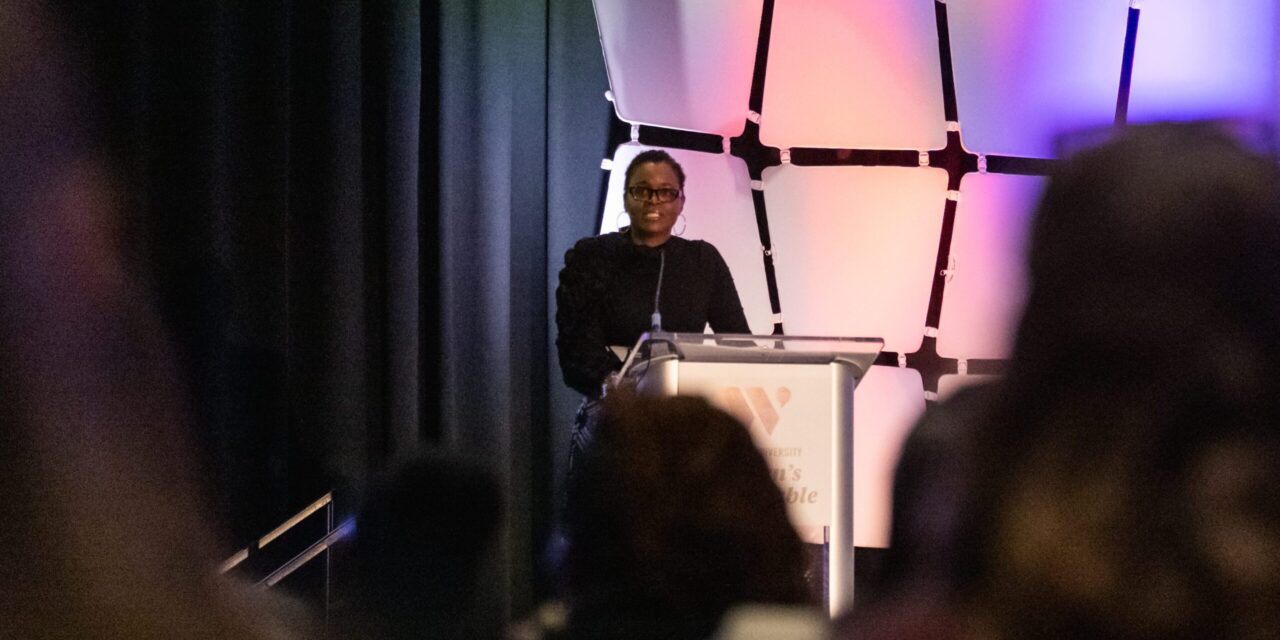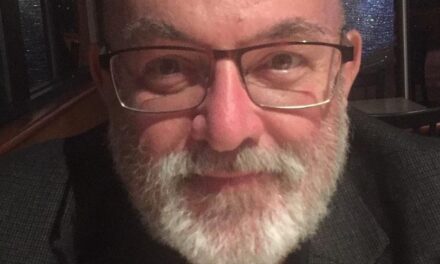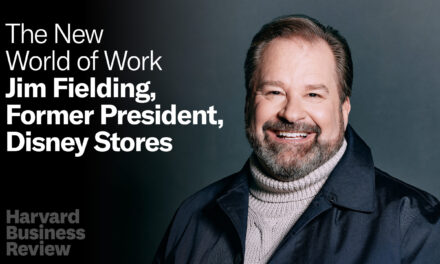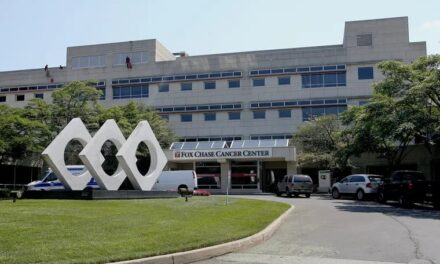“… ’cause I’m a woman. Phenomenally. Phenomenal woman, that’s me.”
The voice of Maya Angelou filled a ballroom inside the Greenville Convention Center on November 2.
650 participants, from middle school students to seasoned career professionals, gathered in the ballroom for Clemson’s third annual Women’s Roundtable. They were welcomed by Felicia Benton-Johnson, vice president for diversity and inclusive excellence and the first woman of color in an executive leadership role at Clemson University.
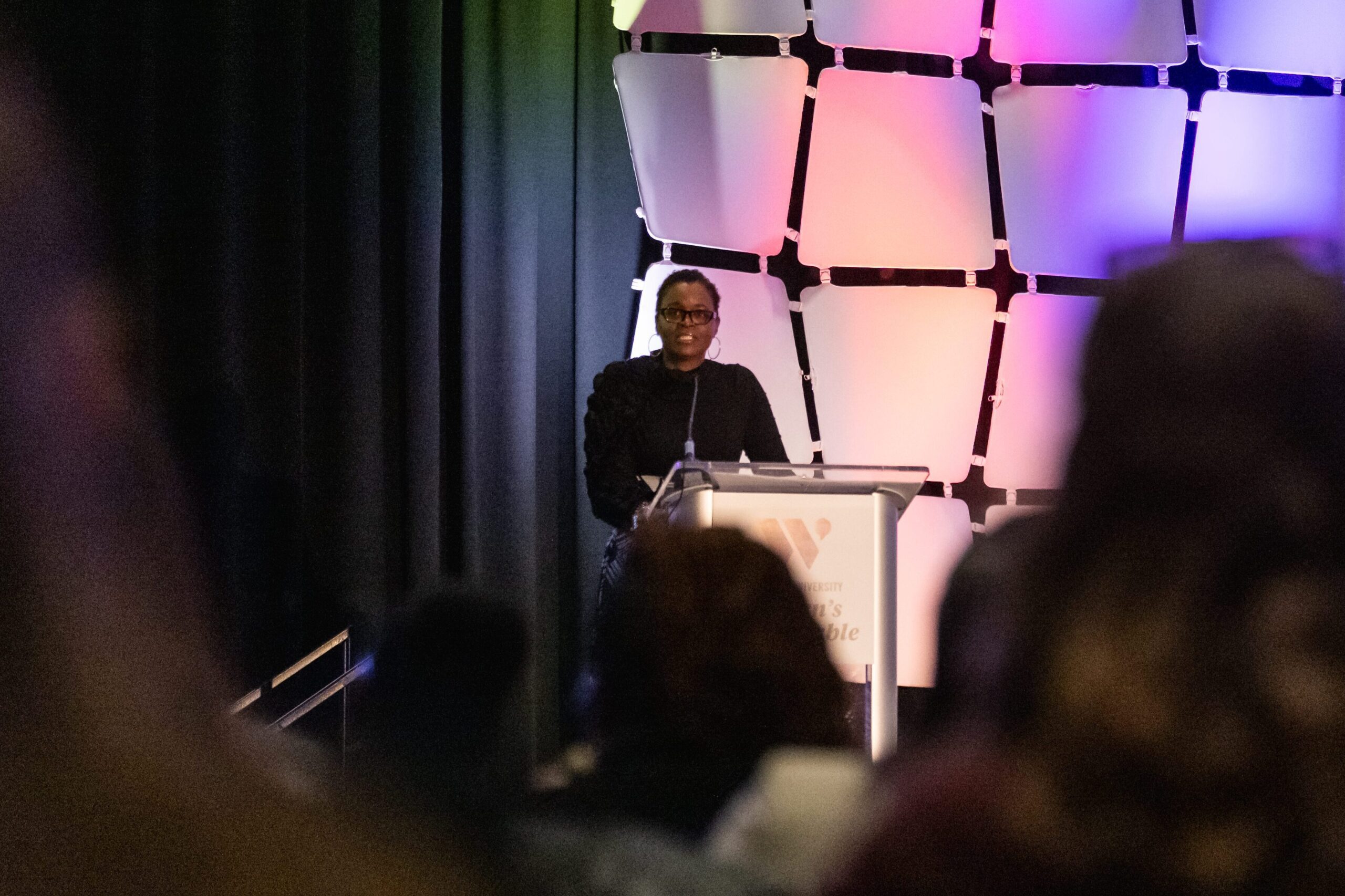
“Good morning, my phenomenal women in this room!” exclaimed Benton-Johnson. “You need to know how phenomenal you are. You need to know the sky is the limit, and what we’re here to do today at the Women’s Roundtable is to show you the way.”
A buzz pulsed through the room all day – and the energy was palpable.
The annual event is a developmental and networking opportunity to promote and encourage the experiences of girls and women, particularly in STEM fields. With attendees from more than twenty different schools across the state, the event takes aim at the third pillar of Clemson Elevate, the University’s strategic plan: transforming lives statewide.
Speakers from a multitude of fields spent the day recounting experiences and advice with an audience hungry for insight.
“As you’re writing the story of your life, make sure you are the one holding the pen,” shared Gris Pruneda, systems and packaging product definition manager at GE Gas Power. “You will always have decisions to make and can get advice from others, but make sure you are making those decisions and taking control of your future.”
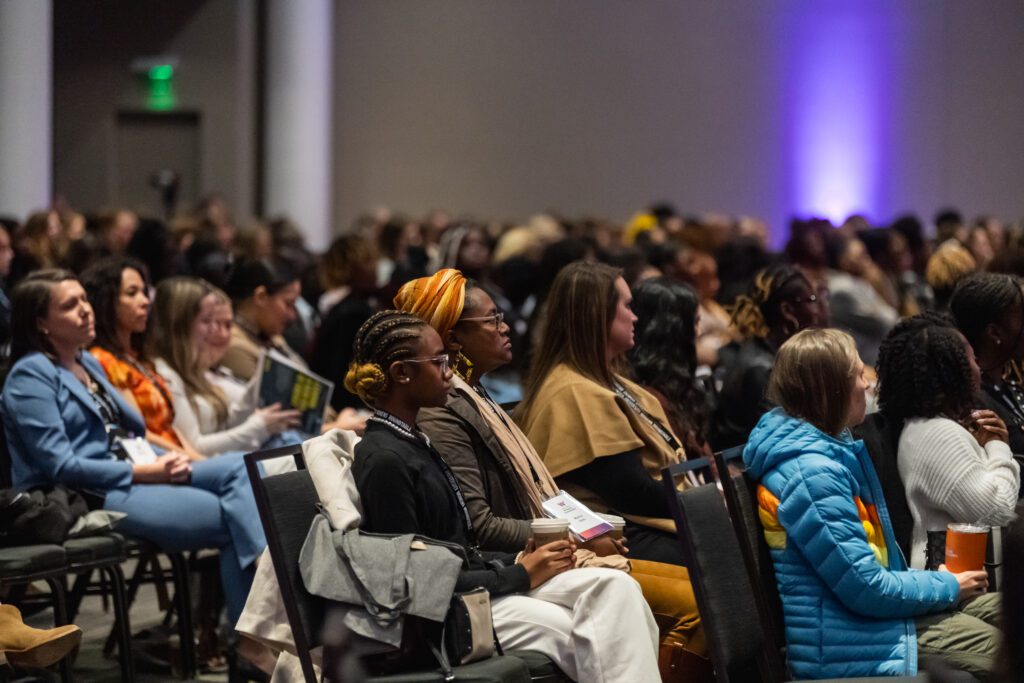
Women comprise roughly 51% of the population and about 47% of the workforce. Clemson sits slightly above the national metrics, with women making up 53% of students and 51.79% of all employees.
Despite a fairly even gender split in education and the general workforce, the American Association of University Women estimates women only make up 27% of the STEM workforce.
Delphine Dean, chair of the Department of Bioengineering and the Ron and Jane Lindsay Family Innovation Professor at Clemson, is among that 27%. She delivered the morning keynote, walking the audience through the creation of a COVID-19 diagnostics lab that, at its height, ran 9,000 tests a day for the University and surrounding community.
“The first year, we were running the lab seven days a week from 6 a.m. to 11 p.m. or later, with no holidays off, which was a commitment I made because it was a global pandemic,” Dean said. She recounted a moment in a meeting when someone declared they needed to find someone to lead the program and be the face of the efforts. She thought to herself, “I thought I was providing leadership on this,…” but didn’t speak up. After the meeting ended, she received a multitude of messages from others in the meeting, encouraging her to speak up. “It is important to let others speak, but when you have something important to say, you should say it. I couldn’t have spoken up to become the leader I became unless those people were there to help work through that.”
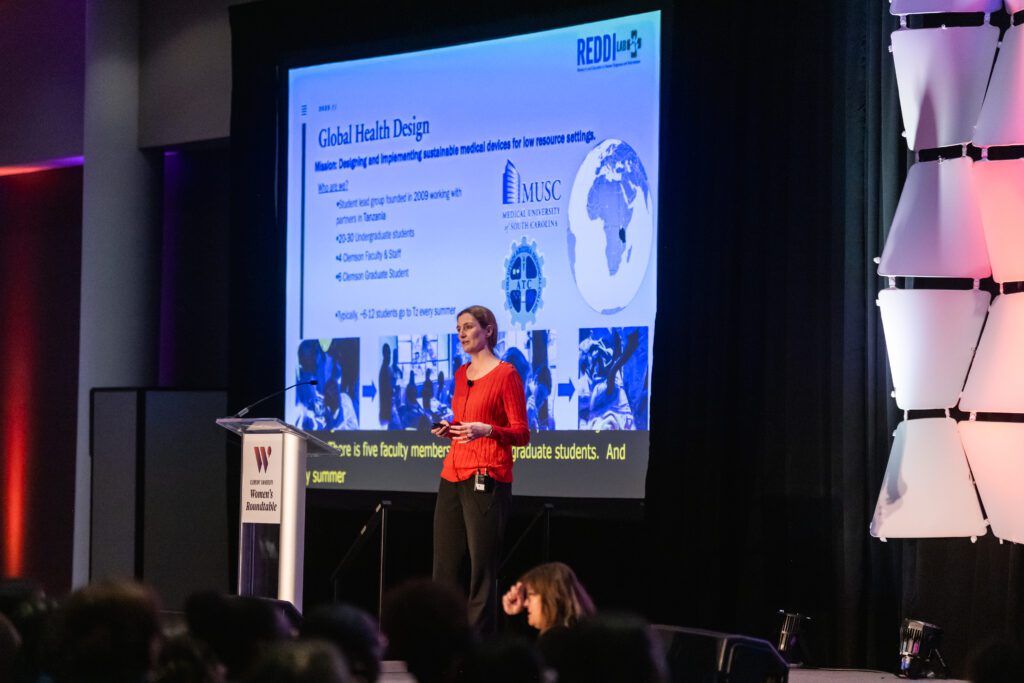
When Ashley McCollum, Clemson’s first African American female student body president and senior biological sciences major challenged participants to stand up and share their goals, she was met with several eager to share their stories.
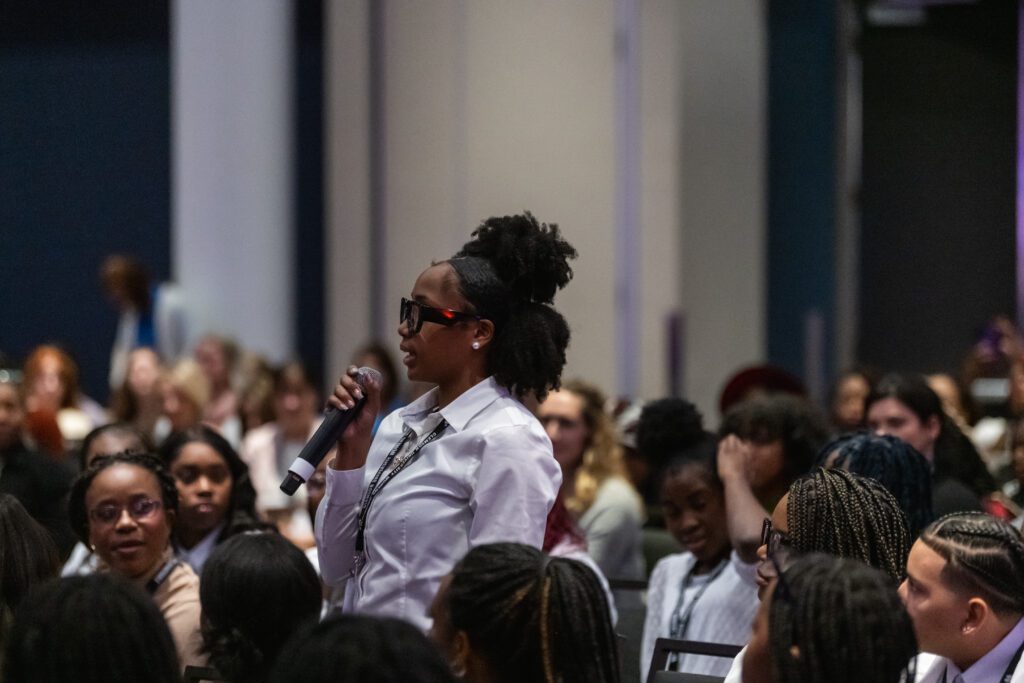
The first to volunteer: Paige Felder, a senior at Crestwell High School in Sumter, S.C. Felder wanted to gain networking skills and knowledge to increase her opportunities in the future.
Reflecting at the end of the day, she had accomplished that. Felder shared she appreciated the insight from the speakers who shared that “it is okay to fail, and it is okay to keep changing.”
Felder wasn’t alone in her motivation. Pendleton High School student Nykiah Osbey proudly proclaimed, “I want to learn how to be more intentional in choosing my future career and how to accomplish goals…”
If Osbey was needing information about building strategy into her goals, five women with varying backgrounds made up this year’s Women of Impact panel and shared their own stories of intentionality.
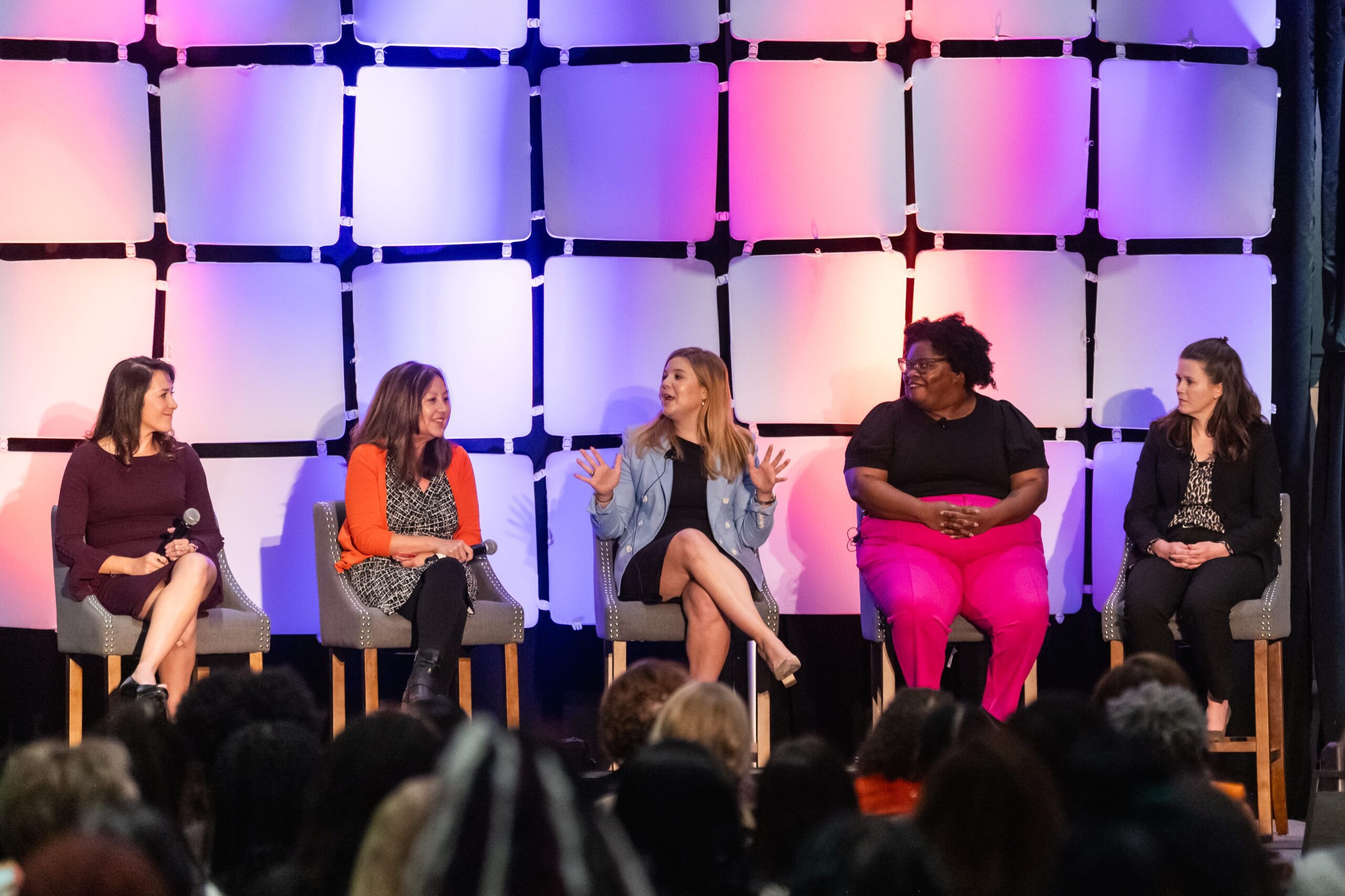
Among the panelists was former Clemson admissions counselor turned screenwriter, photographer and improviser Alrinthea Carter ’05.
“Everything in your life is going to lead to what you are supposed to be doing,” Carter said. “When I turned forty, I learned there are no rules. You can do whatever you want. As long as you’re not hurting or harming people…you can change what you want to do. Move wherever. You can start taking screenwriting classes during quarantine. You have to give yourself permission to do the things you want to do, even if you think you cannot do them.”
Another important addition to the panel was Beth Foster-Gayle. Foster-Gayle is the executive director of the Office of Force Resiliency in the Department of Defense. At a young age, she remembers noticing the people making decisions didn’t look like her.
“I get to be at that table with the joint chiefs of staff and secretary of defense, and I didn’t believe that was possible, but it is,” said Foster-Gayle. “You may not think you belong in that room or at that table, but you do, and you can get there.”
President of Football for Klutch Sports and trailblazing sports agent Nicole Lynn, the event’s keynote speaker, encouraged them to secure that seat early.
“Excellence is your greatest currency,” Lynn imparted. “It doesn’t matter if you’re a woman, your race or age – if you are excellent at what you do – they cannot hold you out. You want to be a trailblazer? You want to be disruptive in the space? You’ve got to be excellent.”
Nicole Lynn, President of Football Operations, Klutch Sports Group
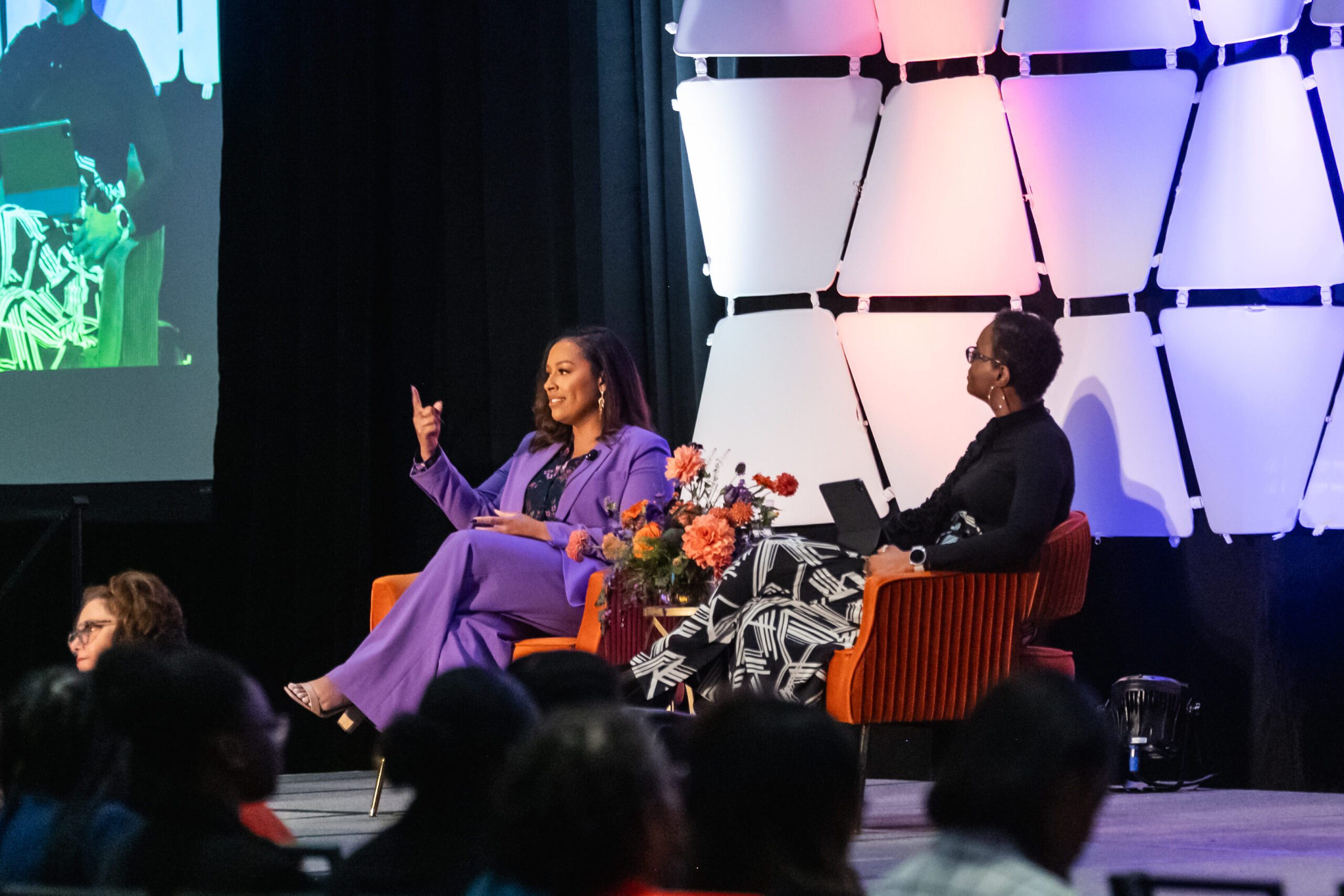
Lynn started in financial advising before getting her law degree. After working in a law firm, she transitioned to working as a sports agent full-time.
“For all my young people in the room, this is the time to fail. This is the time to take the risk, take the job, go for the dream and fall on your face. Because I can tell you as somebody that is a little bit older than a lot of you: failing early is a lot more convenient when you have less to lose,” said Lynn.
“I liked how they basically just told us to go for what we want instead of doubting ourselves so much,” said Estefania Cividanes, a junior at St. Joseph’s Catholic School. “Since I have a lot to decide with what I want to major in, I feel like I’m not as scared to just pick something…”
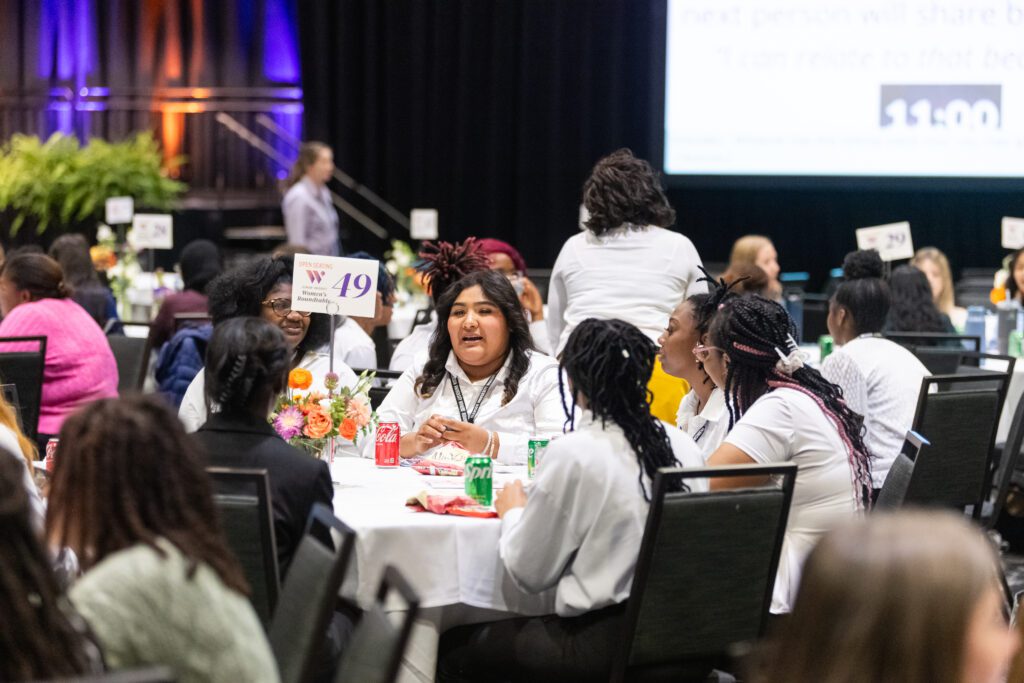
“You always hear that you have to advocate for yourself, especially being a girl going into [a healthcare profession]. They just say that, but then they don’t give you examples,” said Natalia Cardenas, a senior at St. Joseph’s. “But having these speakers and hearing examples of what they’ve done and how they’ve become successful is really impactful.”
Following Lynn’s keynote, participants underwent a roundtable exercise to build connections and commonalities. Topics at tables ranged from academic interests and career paths to what seasoned career professionals wish they knew when they joined the workforce.
Daja Daniels, an academic adviser in Clemson University’s College of Science, had never attended a Women’s Roundtable. Still, she felt called to volunteer as a moderator.
“Even when you’re in high school, life is still hard – it doesn’t matter what age you are. Being able to pour into people that need it, especially at that age, …I really enjoyed it.”
Kendra Stewart-Tillman, assistant vice president and chief operating officer in the Division of Inclusion and Equity, closed the day with a question. A challenge of sorts to the hundreds of young women who may speak at the conference twenty years from now.
“What are you passionate about? Where is your joy? Can you find a way to bring that study and purpose together?”
The third annual Women’s Roundtable proved to be a resounding success, setting the stage for an even larger event next year.
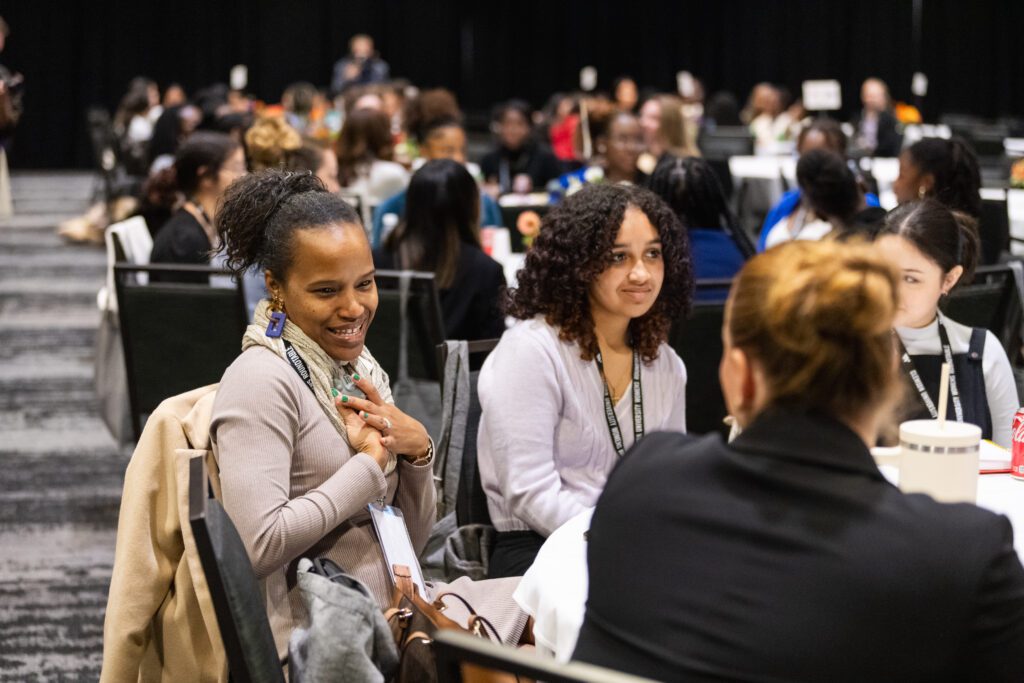
Get in touch and we will connect you with the author or another expert.
Or email us at news@clemson.edu

